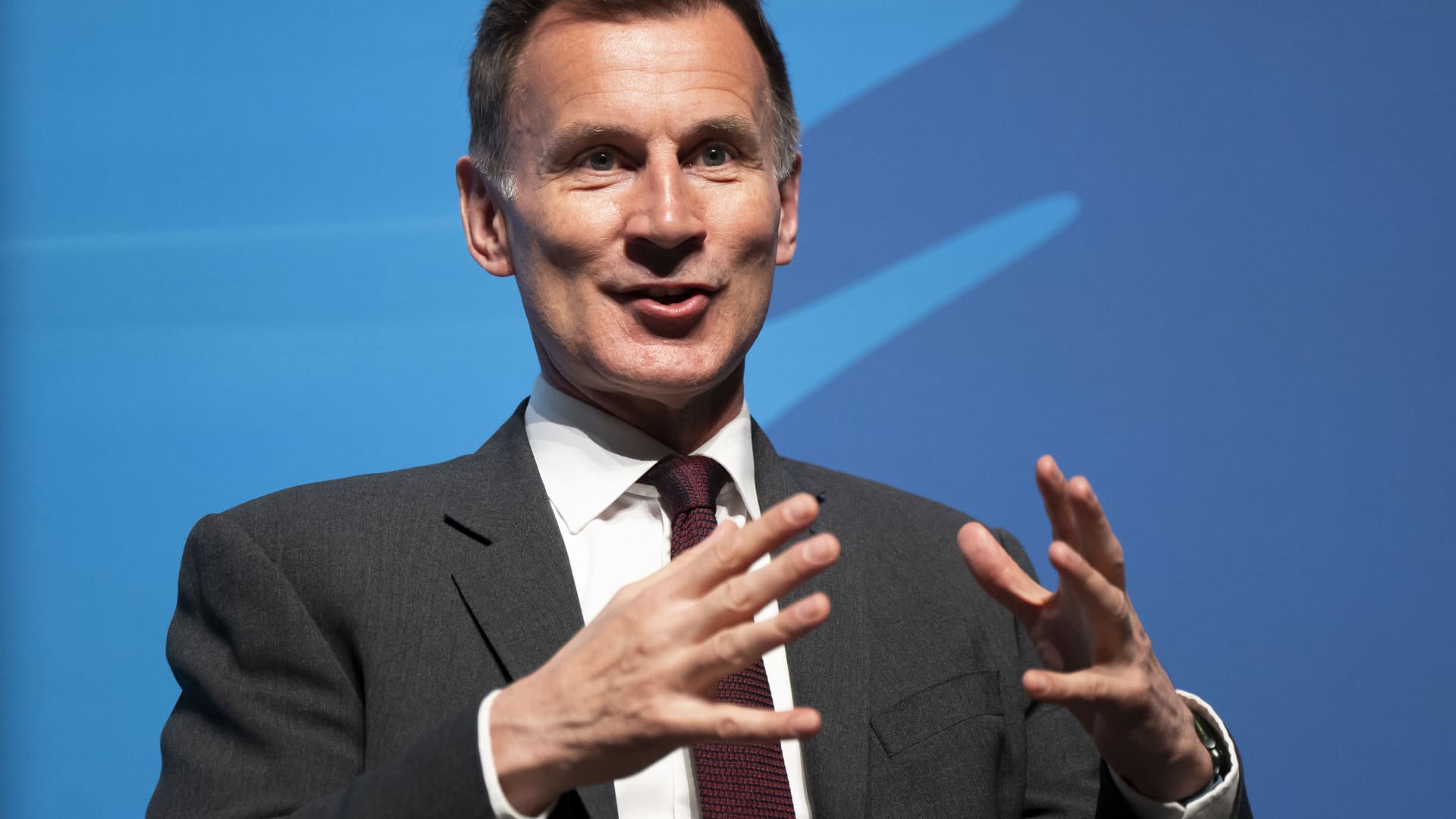NEWPORT, WALES – British Finance Minister Jeremy Hunt attends the Welsh Conservative Party Spring Conference 2023 on April 28, 2023 in Newport, Wales.
Matthew Horwood | Getty Images News | Getty Images
Britain announced plans to ensure that billions of pounds’ worth of pension fund money will be unlocked to invest in early-stage firms, seeking to boost economic growth amid criticism the U.K. is becoming an unattractive place for technology.
In a speech late Monday, U.K. Finance Minister Jeremy Hunt outlined a host of reforms that he said would boost returns for pensioners by £1,000 ($1,283) a year by allowing them to reap the long-term returns from investments in privately-held startups.
Among the measures introduced by the government was an agreement among the country’s largest defined contribution pension providers to allocate 5% of assets in their default funds to unlisted equities by 2030.
This could unlock up to £50 billion (roughly $64 billion) of investment in high-growth firms if all other defined contribution pension schemes follow suit, Hunt said.
Meanwhile, average earners’ pension pots could rise up to 12% to as much as £16,000 with defined contribution pension schemes committing to more effective investments, he added.
The U.K. has the largest pension market in Europe, worth over £2.5 trillion.
“We want to be the world’s next Silicon Valley and a science superpower, embracing new technologies like AI in a way that brings together the skills of our financiers, entrepreneurs and scientists to make our country a force for good in the world, while leading the way on AI safety,” Hunt was due to say in his speech at Mansion House, according to prepared remarks shared with CNBC by the Treasury Department.
“That means making sure our financial services sector, traditionally so nimble and agile, has the right architecture to provide the best possible security for investors as well as capital for businesses, and the best talent right here in the UK to make that happen.”
Hunt also committed to an “intermittent trading venue” that makes it possible for public market investors to trade shares of unlisted firms. This would act as a halfway house for privately-traded firms looking for alternative ways of raising capital to public listings.
UK’s tech track record under fire
It comes after criticism from notable voices in tech that Britain is becoming a less attractive place for tech companies to do business.
Microsoft President Brad Smith said confidence in technology in the U.K. had been “severely shaken” after regulators blocked the company’s takeover of video game publisher Activision Blizzard. Meanwhile, the CEO of fintech firm Revolut, Nikolay Storonsky, said he would “never list” in London due to an unfavorable tax regime and bureaucratic regulation.
Separately, after much lobbying from U.K. officials, chip design firm Arm opted to list in the U.S. rather than Britain. It represented a major blow to the country’s ambitions to become a global destination for big tech IPOs.
“From a personal point of view, I can very much see the potential benefit to U.K. tech,” Will Wynne, co-founder of Smart, an online workplace pensions platform, told CNBC. “We … see this as an opportunity for others to gain support toward similar success.”


